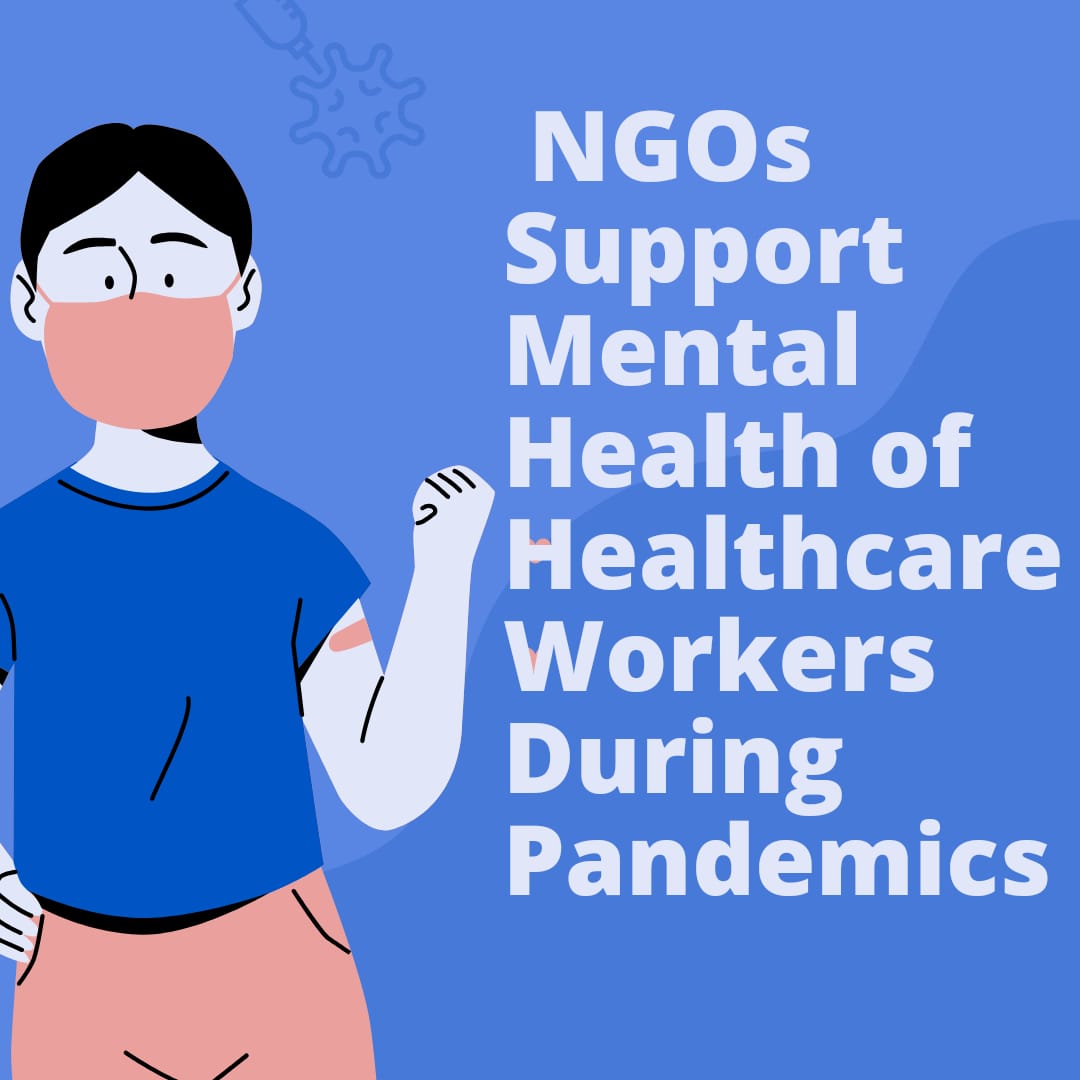
The heroes of pandemics – healthcare workers – tirelessly fight to save lives. But amidst the chaos and pressure, their own mental health can take a backseat. Thankfully, Non-Governmental Organizations (NGOs) are emerging as a vital support system, offering crucial mental health interventions for healthcare workers during these challenging times.
The Invisible Toll of Saving Lives:
Healthcare workers on the frontlines face immense stress:
- Long Hours and Heavy Workloads: Exhaustion and burnout can set in quickly due to extended shifts and high patient volumes.
- Trauma and Loss: Witnessing critical illness and death on a daily basis can take a significant emotional toll.
- Fear of Infection: Working in high-risk environments can lead to anxiety and fear of contracting the illness themselves or transmitting it to loved ones.
NGOs: Champions of Mental Wellbeing for Healthcare Workers:
Recognizing the mental health crisis among healthcare workers, NGOs are taking action:
Stress Management Workshops: Providing workshops on mindfulness techniques, relaxation exercises, and healthy coping mechanisms equips healthcare workers with tools to manage stress.
- Peer Support Groups: Creating safe spaces where healthcare workers can connect with colleagues who understand their experiences fosters a sense of community and reduces feelings of isolation.
- Online Mental Health Resources: Developing online platforms with self-help resources, access to mental health professionals, and anonymous support forums provides 24/7 access to support.
- Advocacy for Improved Working Conditions: NGOs advocate for increased staffing, adequate rest breaks, and access to mental health services within hospitals and healthcare facilities.
Beyond Immediate Interventions:
The work of NGOs goes beyond immediate crisis intervention. Here’s how they are making a lasting impact:
- Building Resilience: NGOs offer training programs to develop emotional resilience in healthcare workers, equipping them to cope with the unique challenges they face.
- Promoting Self-Care: Encouraging healthcare workers to prioritize self-care by taking breaks, engaging in healthy activities, and seeking support when needed.
- Destigmatizing Mental Health: NGOs work to challenge the stigma surrounding mental health within the healthcare community, encouraging help-seeking behavior without fear of judgment.
A Lifeline in a Time of Crisis:
During pandemics, NGOs become a lifeline for healthcare workers struggling with mental health challenges. By offering accessible support systems, building resilience, and advocating for better working conditions, NGOs are ensuring the well-being of those who dedicate themselves to saving others. As their work continues, we can build a future where mental health support for healthcare workers is not just available during pandemics, but becomes a standard part of their professional lives.
Kanishka
